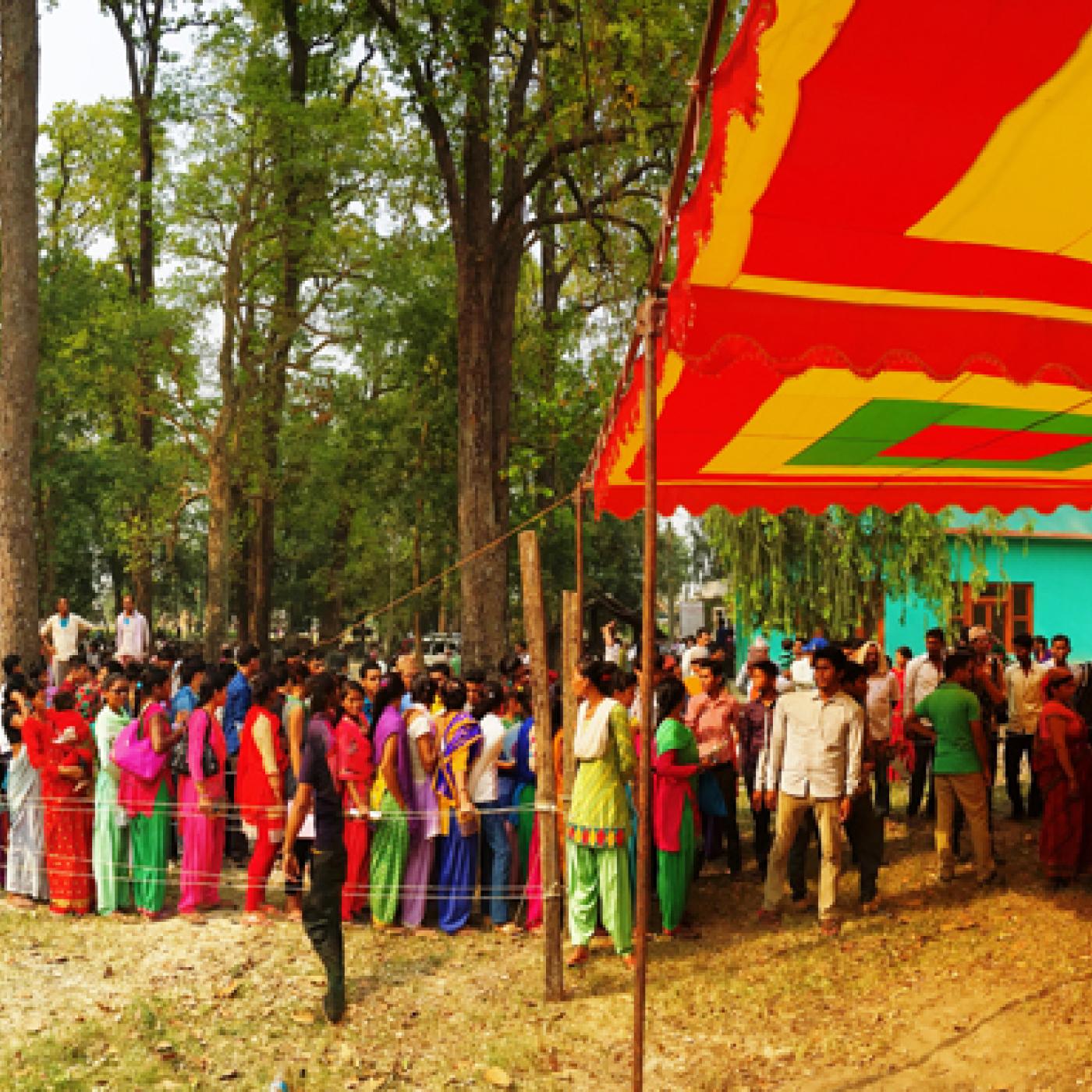Tools & Resources
Filter by
Type
Publication date
Language
Type
Publication date
Language
News & Updates
Feature
Manatt Fellow Presents on Election Dispute Resolution in Africa
In September 2019, IFES Manatt Fellow Tinashe Hofisi presented on presidential election petitions in Kenya, Sierra Leone, Uganda, Zambia and Zimbabwe at the 14th Annual Symposium of the Electoral Institute for Sustainable Democracy in Africa. He highlighted the unique jurisdictional tools available to apex courts in adjudication of presidential elections and their effect on judicial outcomes.
News & Updates
Feature
Manatt Fellow Presents on Presidential Election Petitions in Africa
From October 30-November 1, 2019, IFES participated in the Fourth African Judicial Dialogue in Uganda. IFES Manatt Fellow Tinashe Hofisi presented his paper on presidential election petitions in Kenya, Sierra Leone, Uganda, Zambia and Zimbabwe.
News & Updates
Feature
Photo Gallery: IFES 2016 Photography Contest Winner and Finalists
An image of a person with a disability in India on his way to vote with the assistance of his son was selected as the Grand Prize winner in the International Foundation for Electoral Systems’ (IFES) 2016 Photography Contest. A photo of eager citizens in queue to obtain their citizenship cards and enroll on the Election Commission of Nepal's voter register at a mobile camp in Kailali district, Nepal was selected as the IFES Choice winner of the Photography Contest.
News & Updates
Feature
Taking Stock of Uganda’s 2016 General Elections
On February 18, Uganda held general elections for President and Parliament. This post-election Q&A covers the importance of these elections, IFES’ role in supporting the electoral process, and the political environment and security situation before and during the vote.
Election FAQ
Elections in Uganda: 2016 General Elections
On February 18, Ugandans will vote for President, 290 Members of Parliament who are directly elected to represent 290 constituencies, as well as 112 District Women Members of Parliament. A presidential candidate must receive 50 percent plus one vote to avoid a run-off election. Members of Parliament are elected in single-member constituencies through a simple majority system.
News & Updates
Feature
Is a New Power-Sharing Deal the Best Governing Arrangement for Yemen?
Over the past two decades Yemen’s political leadership has often addressed political deadlocks or crises by signing informal power-sharing arrangements among various tribal, regional and political groups in the absence of institutions or a legal framework mandating or regulating these agreements. Many of the agreements were either aborted immediately upon adoption, never implemented, or abandoned within a few years.
News & Updates
Feature
IFES Supports New Biometric Voter Registration System in Yemen
Since 2012, the International Foundation for Electoral Systems (IFES) has been providing technical assistance to Yemen’s electoral body, the Supreme Commission of Elections and Referendum (SCER), to develop and implement the country’s new biometric voter registration system (BVR). In May 2014, the SCER conducted a pilot test of the new system, registering nearly 19,000 individuals out of a total estimated voting age population of 24,000 in a single electoral district in the capital of Sana’a.
News & Updates
Interview/Speech/Testimony
Leveling the Playing Field for Yemeni Women: A Q&A with Safia Al-Sayaghi
News & Updates
Feature
Transition at a Crossroads: Moving Beyond the GCC Agreement in Yemen
In late 2011, Yemeni political leaders and stakeholders endorsed the Gulf Cooperation Council (GCC) Agreement, which laid out a two-year roadmap for resolving Yemen's political paralysis. The agreement scripted a process with an inclusive National Dialogue, a new constitution, a constitutional referendum and national elections to move the country forward. Two years later, it is likely the initial timeframe will expire without a referendum and without elections. Please view a panel discussion on these timely issues, the overall political environment in Yemen, the potential impact on the electoral process and the ongoing role of the international community.
Publication
Book
Financing Politics: The Middle East and North Africa
Financing Politics: The Middle East and North Africa is a collaborative effort between the International Foundation for Electoral Systems (IFES) and the Arab Region Parliamentarians against Corruption (ARPAC). It represents a concerted attempt to better understand and document existing political finance regulations and experiences in five countries – Egypt, Jordan, Lebanon, Tunisia and Yemen. The availability of information on the funding of parties and campaigns is a first and significant step in enhancing transparency.
September 30, 2013







